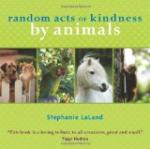His religion made him so happy, there was not a merrier boy to be found. Some people will tell you that being religious makes a boy feel dull and melancholy. Ask them if they think you so silly as to believe that walking in the summer sunshine will make you feel dark and cold? True religion is to man what the bright sunshine is to the little insects that sport upon the wing, and who find in it not only their light but their life.
[Illustration: The woolly bear caterpillar.]
Does any boy’s conscience smite him at my naming the insects? I hope not. I hope you have not been tempted by Satan to do any harm to the little harmless, and often useful, creatures that cross your path. A butterfly, a cockchaffer, a house-fly, a snail, a caterpillar, a worm—these, and all others, are God’s handy-work; and if you could see them through a glass that magnifies very much indeed, you would be more astonished than I can tell you. The small powder, scarcely seen on your finger’s end, from the wing of a butterfly, is a lump of the most beautiful feathers, so delicate that the gentlest touch will rub some of them off: the wing itself is made of lovely net-work, like silver threads, stretched on strong wires; and all the skill of all the most skilful men in the world could make nothing to equal the coarsest part of the plainest insect. But it is not their beauty—though we ought to see and to glorify the Creator’s hand in that—it is their delicate sense of feeling that should keep us from hurting them. The common worm is very useful in dividing the clods of earth, which would otherwise become so hard as to prevent the fine fibres of the roots of plants from forcing their way, and then the plants would die. Man has not discovered all the uses of the different insects; but God has made nothing in vain: and though, for our own safety and comfort, we must destroy some sorts, still we are bound to do it in the quickest and most complete manner, or else we must give an account to their Creator and ours for the cruelty we commit. I have killed insects myself, for no reason but because I saw that they must fall into the hands of boys, or others, whom I knew to be so dreadfully wicked as to take pleasure in torturing them; but I did it sorrowfully; feeling that I could not give life to the meanest reptile, and that I must be able to render to God a reason for taking it away. I have found poor harmless insects alive, most cruelly maimed, with their wings or legs torn off, or their bodies pierced through; and I shuddered to think how the eye of God was fixed on those who did it, never losing sight of them; and I have prayed that he would change their wicked hearts before it was too late.




